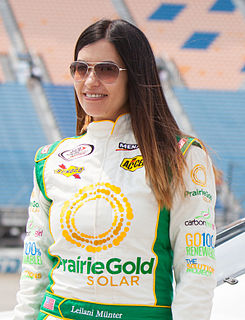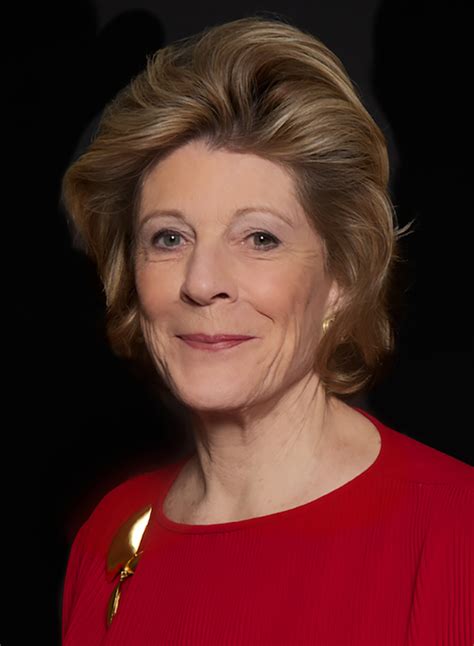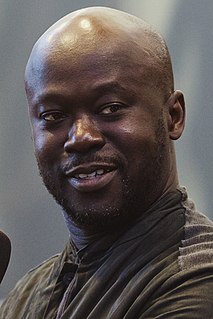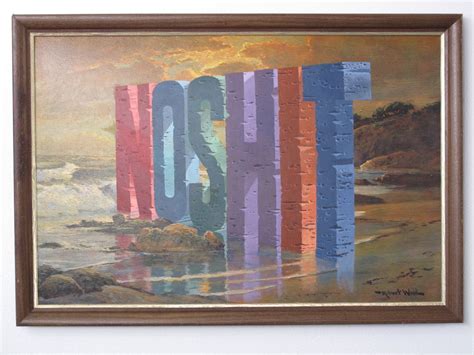A Quote by Martin Filler
The most basic task of any museum must be the protection of works of cultural significance entrusted to its care for the edification and pleasure of future generations. This imperative rightfully takes precedence over acquisition, interpretation, outreach, or any number of other activities now believed to be crucial to the survival of our great art repositories. Sometimes a museum gains its holdings with much strategic forethought, and at other times serendipitously, as when a long-coveted neighbor’s plot suddenly becomes available. Yet the moral responsibility remains the same.
Quote Topics
Acquisition
Activities
Any
Art
Available
Basic
Becomes
Believed
Care
Crucial
Cultural
Edification
Entrusted
Forethought
Future
Future Generation
Future Generations
Gains
Generations
Great
Great Art
Imperative
Interpretation
Long
Moral
Moral Responsibility
Most
Much
Museum
Must
Neighbor
Now
Number
Other
Our
Outreach
Over
Pleasure
Plot
Precedence
Protection
Remains
Responsibility
Rightfully
Same
Significance
Sometimes
Strategic
Suddenly
Survival
Takes
Task
Times
Works
Related Quotes
What a museum chooses to exhibit is sometimes less important than how such decisions are made and what values inform them. To have the crucial role of museum professionals usurped by self-serving tycoons in the name of economic imperative threatens not only the integrity of individual institutions but the very principle of art held in public trust.
I've put live performance in a lot of spaces. Part of what I want to do is take over the takeover. Another way that someone put it is, you climb over the fence and you cut a hole in it, and let everyone else in. That's kind of what this is. The museum is a repository of great works, but there is certain work that no one ever calls great. This is an insistence on directing their attention to other stuff that's great, that never gets to be in a museum.
A tension has always existed between the capitalist imperative to maximize efficiency at any cost and the moral imperatives of culture, which historically have served as a counterweight to the moral blindness of the market. This is another example of the cultural contradictions of capitalism - the tendency over time for the economic impulse to erode the moral underpinnings of society. Mercy toward the animals in our care is one such casualty.
Man is a historical being : The realisations of the powers of human individuals living at any one time takes the cooperation of many generations (or even societies) over a long period of time. By contrast with humankind, every individual animal can and does do what for the most part it might do, or what any other of its kind might or can do that lives at the same time.
My education in the arts began at the Cleveland Museum of Art. As a Cleveland child, I visited the museum's halls and corridors, gallery spaces and shows, over and over. For me, the Cleveland Museum was a school of my very own - the place where my eyes opened, my tastes developed, my ideas about beauty and creativity grew.
The museum in D.C. is really a narrative museum - the nature of a people and how you represent that story. Whereas the Studio Museum is really a contemporary art museum that happens to be about the diaspora and a particular body of contemporary artists ignored by the mainstream. The Studio Museum has championed that and brought into the mainstream. So the museums are like brothers, but different.
I believe that to meet the challenge of our times, human beings will have to develop a greater sense of universal responsibility. We must all learn to work not just for our own self, family, or nation but for the benefit of all humankind. Universal responsibility is the key to human survival. It is the best foundation for world peace, the equitable use of natural resources, and through concern for future generations, the proper care of the environment.
[Cameras] tend to turn people into things and the photograph extends and multiplies the human image to the proportions of mass-produced merchandise and, [in the age of photography] the world itself becomes a sort of museum of objects that have been encountered before in some other museum and to say that the camera cannot lie is merely to underline the multiple deceits that are now practiced in its name.

































